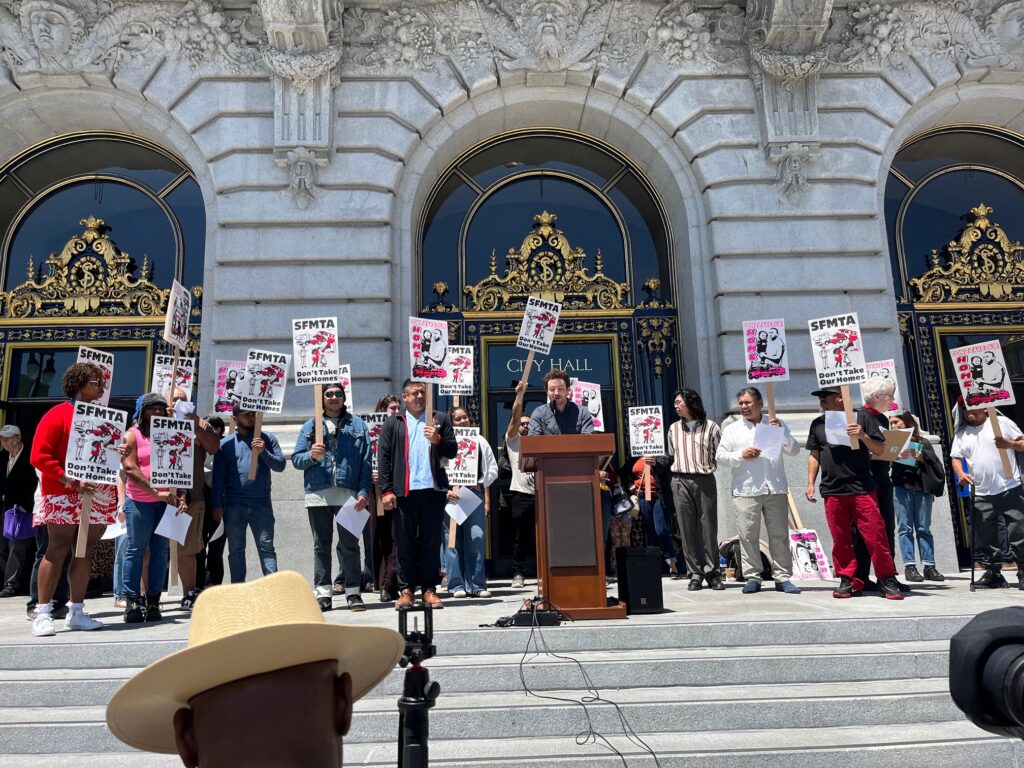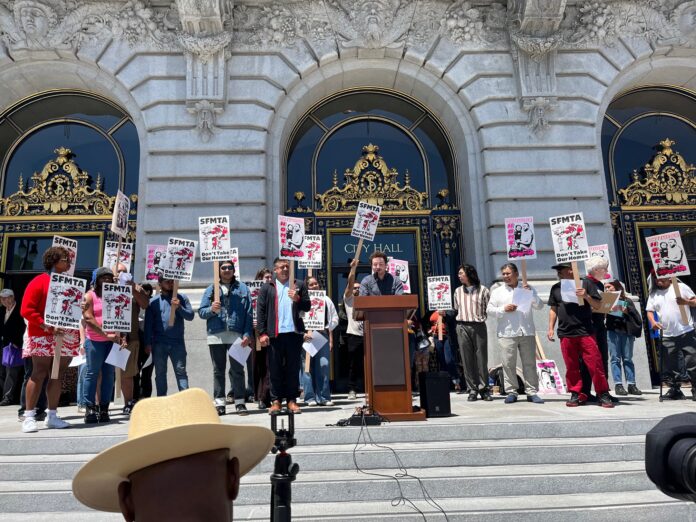Despite extensive public opposition and data showing the program will cause more homelessness, the SF Municipal Transportation Authority voted 6-1 June 17 in favor of a program that would set a two-hour limit on parking of all RVs in the city.
That could lead to hundreds of people, including families, to lose their homes to citations and tows.
The Mayor’s Office is promoting the program as a way to “keep the streets clean,” Kunal Modi, a former partner in the consulting firm McKinsey who is the head of health, homelessness, and family services, told the panel.

He said the goal of the program, that would make most RV living illegal, was to “get everyone who is living in an RV to a better and more stable housing situation” and to “allow all of our residents, small businesses, and bicyclists to enjoy clean and safe streets.”
The MTA staff insisted that the program was “compassionate” because people living in RVs will be allowed a six-month permit to transition out of their homes—but those permits are only valid if the residents are actively engaged with city service providers in seeking alternatives.
Among the alternatives are some housing subsidies and “non-congregate shelter,” which doesn’t work for a lot of families. Numerous speakers pointed out that that the city has nowhere near enough available affordable housing for the 437 residents, many of them children, who were counted in the last homeless census as living in vehicles.
At a rally in front of City Hall before the meeting, activists and RV residents pointed out that many of the people whose lives would be disrupted were Latinx immigrants. “You don’t kick immigrants out of a sanctuary city,” Gabriel Medina, director of La Raza Community Resource Center, told the rally.
Dozens of speakers, some in tears, told the MTA board members about losing their homes. “Where can I go?” one RV resident who is a cook at several local universities, asked. “It has become a nightmare. My son and I looked into other housing, but it’s too expensive.”
The SFMTA staff and the Mayor’s Office admitted that they only expect to have vouchers and shelter for about half the current RV residents, and not all of them will get the temporary permits.
Lukas Illa, an organizer with the Coalition on Homelessness, noted that some people “have pets, jobs at odd hours, two families sharing an RV,” and for them, the city’s offers of shelter are a huge step down from their current living situation.
Shelters have “restrictions on food and visitors, when you can enter, when you can leave,” he said.
Also: Most shelters limit stays to 60 or 90 days, which is nowhere near enough time for someone with little income to find even a subsidized apartment. And rent subsidies are also temporary.
One RV resident testified that he makes $3,000 a month, which will never cover the rent for him and his disabled brother.
A social worker who works with RV residents and in homeless shelters put it simply: “There is no way anyone gets into housing in six-to-12 months, even if they have a voucher. It takes years.”
Oh, and the Trump Administration has made it clear that information on any housing voucher that goes through the federal Department of Housing and Urban Development will be shared with ICE.
The temporary relief program only applies to people the city identified as living in RVs as of May 31, 2025. “When future residents become homeless because they can’t pay the rent and are evicted, what happens to them?” the social worker asked.
As El Tecolote reported in an in-depth investigation, the city has been weaponizing traffic rules to get rid of people who are too poor to live anywhere but in an RV.
City officials have talked about creating safe parking zones for RVs, but for the most part, that hasn’t happened. At this point, Medina said, “just leave these families alone.”
The legislation passed with only Vice Chair Stephanie Cajina opposed. Now it goes to the Board of Supes for final approval, and it current has the support of Sups. Myrna Melgar, Rafael Mandelman, Joel Engardio, Matt Dorsey, and Stephen Sherrill.
“There’s an awful lot of aggressive Nimby legislation at this current board,” former Sup. Dean Preston told me.







